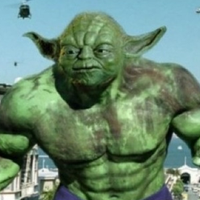牙疼
青青 : 老张 , 为什么 用手 捂着 嘴 ?
老张 : 我 牙疼 。 疼 了 我 一 晚上 了 。
青青 : 你 最近 是 偷吃 糖 了 , 还是 偷懒 不 刷牙 了 ?
老张 : 没有 的 事儿 , 我 每天 刷 三次 牙 , 只不过 最近 多 吃 了 几块 糖 !
不行 了 , 我要 赶紧 去 医院 !
大家 好 , 今天 我 和 老张 的 对话 主题 是 —— 牙疼 。
中国 有 一句 老话 叫做 “ 牙疼 不是 病 , 疼 起来 真要命 。 意思 是 “ 牙齿 疼 不是 身体 的 大 毛病 , 但是 呢 , 如果 牙疼 了 , 会 非常 非常 难受 , 非常 非常 痛苦 ”。
对 , 那么 “ 牙疼 ”(toothache), 就是 “ 牙齿 疼痛 。 老张 , 那 让 我们 一 起来 想想 和 “ 牙齿 ” 有关 的 词汇 吧 !
比如 ,“ 牙刷 ”(toothbrush),“ 牙膏 ”(toothpaste),“ 牙医 ”(dentist),“ 牙科 ”dentistry”。
例如 ,“ 牙医 告诉 我 每天 要 刷 两次 牙 , 这样 才 不会 牙疼 。 那 我 也 用 “ 牙疼 ” 造个 句子 吧 。
例如 ,“ 他 每次 牙疼 都 用 自己 的 方法 治疗 , 不去 看 医生 。 下面 让 我们 看 一下 课文 中 的 句子
老张 : 我 牙疼 。 疼 了 我 一 晚上 了 。
第二个 单词 “ 捂 ”(cover), 和 “ 手 ” 有 关系 的 动词 。
意思 是 “ 用手 遮住 、 盖住 某个 东西 ”, 也 有 “ 把 东西 盖住 , 不让 别人 看见 、 发现 ” 的 意思 。
例如 ,“ 他 不让 孩子 哭 , 用手 捂着 孩子 的 嘴 。 再 例如 ,“ 他 被 公司 解雇 了 , 却 一直 捂着 , 不让 老婆 知道 。 我们 课文 中 的 句子 是 :
青青 : 老张 , 为什么 用手 捂着 嘴 ?
第三个 单词 “ 偷懒 ”(spareoneself), 意思 是 “ 为了 舒服 、 不 做 应该 做 的 事 。 “ 偷懒 ” 这个 词 意思 比较简单 , 我来造 两个 句子 。
例如 ,“ 他 上班 的 时候 偷懒 , 被 老板 发现 了 , 扣 了 奖金 。 再 例如 ,“ 我 昨天 回到 家 已经 十二点 了 , 所以 就 偷懒 , 没有 洗澡 。 现在 来 听 一下 我们 课文 中 “ 偷懒 ” 是 怎么 用 的 ?
青青 : 你 最近 是 偷吃 糖 了 , 还是 偷懒 不 刷牙 了 ?
第四个 单词 ,“ 赶紧 ”(assoonaspossible), 意思 是 “ 抓紧时间 , 立刻 、 马上 做 某件事 ”。
例如 , 我们 说 “ 马上 八点 了 , 赶紧 起床 , 要不然 要 迟到 了 。 再 例如 ,“ 老板 马上 要来 了 , 你 赶紧 准备 好 报告 , 给 他 签字 。 嗯 , 那 我们 来 听 一下 课文 中 的 句子 是 :
不行 了 , 我要 赶紧 去 医院 !
最后 , 我们 学习 一个 短语 “ 没有 的 事儿 ”, 意思 很 简单 , 就是 “ 不 对 , 不是 这样 的 ”。
例如 , 我 说 “ 老张 , 你 最近 是不是 有 新 女朋友 了 ? 老张 可以 说 “ 没有 的 事儿 , 你别 造谣 啊 ! 这里 的 造谣 (slander), 意思 是 制造 假消息 。
再 例如 , 我 说 ,“ 老张 , 听说 你 中 彩票 了 , 什么 时候 请客 呢 ? 老张 可以 说 “ 没有 的 事儿 , 要 真 中 彩票 了 , 我 肯定 请 你 吃饭 。 来 听 一下 课文 中 的 句子
老张 : 没有 的 事儿 , 我 每天 刷 三次 牙 , 只不过 最近 多 吃 了 几块 糖 !
现在 我 说 说 短文 对话 的 内容 : 老张 有 很 好 的 习惯 , 每次 吃完饭 以后 都 会 把 牙刷 得 干干净净 。
但是 , 他 为什么 牙疼 呢 ?
因为 呢 , 他 最近 嘴馋 了 , 比 平时 多 吃 了 一些 糖 , 所以 现在 牙齿 疼得 受不了 了 , 只能 去 看 牙医 。
好 了 , 今天 我们 的 对话 解释 就 到 这里 了 。
下面 我们 再来 听 一遍 今天 的 对话 。
青青 : 老张 , 为什么 用手 捂着 嘴 ?
老张 : 我 牙疼 。 疼 了 我 一 晚上 了 。
青青 : 你 最近 是 偷吃 糖 了 , 还是 偷懒 不 刷牙 了 ?
老张 : 没有 的 事儿 , 我 每天 刷 三次 牙 , 只不过 最近 多 吃 了 几块 糖 !
不行 了 , 我要 赶紧 去 医院 !

